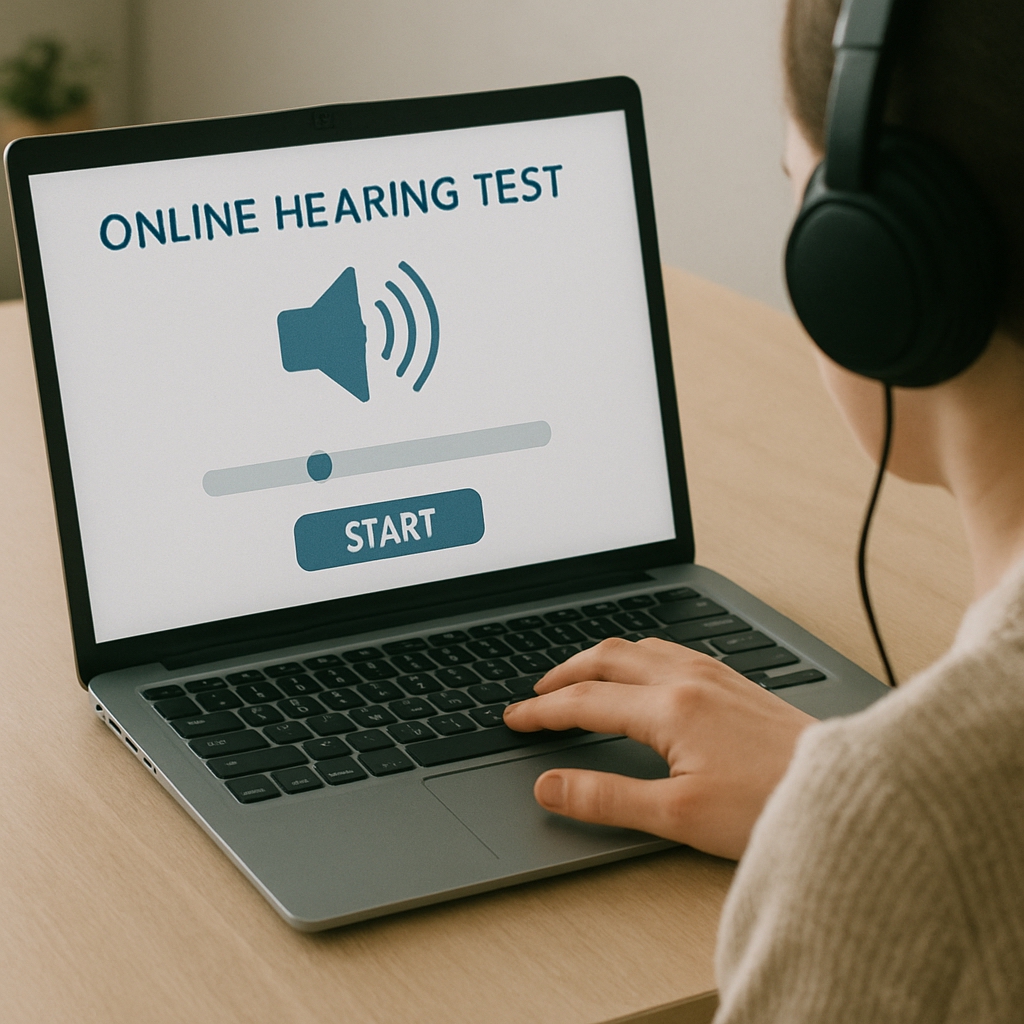Understanding Hearing Loss: Causes & Solutions

Understanding the Causes of Hearing Loss
Hearing loss is more than just a medical condition. It touches lives in profound ways, affecting how we connect with the world. Understanding its causes can help us foster empathy and support for those who experience it.
Millions of people live with hearing impairment, each with their own story. These stories often include challenges, but also resilience and adaptation. By learning about hearing loss, we can better support our loved ones and ourselves.
Hearing loss can stem from various factors, including age, noise exposure, and genetics. Each cause has its own impact, shaping the experience of those affected. Recognizing these causes is the first step toward prevention and care.
In this guide, we'll explore the different types and causes of hearing loss. We'll also discuss the emotional impact and ways to support those with hearing impairment. Together, we can create a more understanding and inclusive world.
What Is Hearing Loss?
Hearing loss occurs when one or more parts of the ear do not work as they should. This condition affects the ability to perceive sound clearly and can vary greatly in severity. Some individuals may struggle to hear faint sounds, while others may miss even loud noises altogether.
To understand hearing loss, it is essential to know the basics of how we hear. Sound waves enter the ear and travel through three main sections:
- Outer ear
- Middle ear
- Inner ear
If any of these parts malfunction, hearing can be impaired. This can lead to difficulties in communication and everyday interactions. Recognizing the mechanics of hearing loss helps create a path toward effective treatment and support.
Types of Hearing Loss
Hearing loss comes in various forms, each with distinct characteristics. Understanding these types can aid in identifying the right approach for management and care. Let's explore the primary categories of hearing impairment.
Conductive Hearing Loss occurs when sound waves are blocked from reaching the inner ear. This can be due to earwax buildup or fluid in the ear. It is often temporary and may improve with medical treatment or minor procedures.
Sensorineural Hearing Loss is more permanent and results from damage to the inner ear or the auditory nerve. Causes include aging, loud noise exposure, or genetic factors. Hearing aids often help amplify sounds for those affected.
Mixed Hearing Loss combines elements of both conductive and sensorineural loss. Individuals may experience issues with sound transmission and processing. Treatment may involve a combination of medical intervention and hearing aids.
Common Causes of Hearing Loss
Understanding the causes of hearing loss can empower individuals to take preventive steps. Many people experience hearing impairment due to different reasons. Here's a closer look at some common causes.
One of the most prevalent causes is aging. As we get older, the structures in our ears can weaken. This natural process often leads to gradual hearing loss.
Exposure to loud noises is another major factor. Frequent exposure can damage the delicate structures of the inner ear. This can result in noise-induced hearing loss, which is often preventable with protection.
Infections and illnesses can also lead to hearing impairment. Conditions like meningitis or severe ear infections might have lasting effects. Some medications, known as ototoxic drugs, can also harm hearing.
Lastly, genetic factors play a significant role. Hearing loss can be hereditary, affecting individuals from a young age. Early detection and intervention are crucial for managing genetic hearing loss.
Common Causes Include:
- Aging
- Exposure to loud noises
- Infections and illnesses
- Genetic factors
- Certain medications
While some causes are unavoidable, understanding them fosters better management and prevention strategies. Addressing hearing loss early can enhance quality of life and communication.
Recognizing the Signs and Symptoms
Recognizing the early signs of hearing loss is crucial. Often, symptoms can be subtle and easily overlooked. Being aware can lead to timely intervention.
Common symptoms include difficulty hearing conversations, especially in noisy environments. You might find yourself frequently asking others to repeat themselves. Watching television or listening to music at higher volumes can also be a telltale sign.
Another symptom to be mindful of is ringing in the ears, known as tinnitus. This can accompany hearing loss and is worth noting.
Key Signs to Watch For:
- Difficulty understanding speech
- Frequently asking for repetitions
- Increasing volume on devices
- Tinnitus or ringing in the ears
Recognizing these signs can make a significant difference in addressing hearing impairment early. It's a step towards preserving your hearing health effectively.
The Emotional Impact of Hearing Impairment
Hearing impairment can profoundly impact emotions and mental well-being. It's important to understand this facet of hearing loss. The journey involves more than just the physical change in hearing ability.
Feelings of isolation and frustration are common among those experiencing hearing loss. Social interactions may become more challenging, leading to a sense of detachment. This emotional strain can affect relationships and self-esteem.
Empathy and support from loved ones play a crucial role in navigating these challenges. Understanding the emotional aspect encourages a compassionate approach. It helps build a supportive environment for those affected by hearing impairment.
Prevention and Protection: Caring for Your Hearing
Taking proactive measures can significantly reduce the risk of hearing loss. It's never too early to start caring for your ears. Prevention is key to maintaining good hearing health.
Adopting a few simple lifestyle changes can go a long way. Reducing exposure to loud noises and using ear protection are essential steps. Regular hearing check-ups ensure early detection and management.
Consider incorporating these protective habits into your routine:
- Wear earplugs at concerts or in noisy environments.
- Keep volume levels low when using headphones.
- Take breaks from loud activities to rest your ears.
By prioritizing ear health, you can safeguard your hearing for the years to come.
Solutions and Support: Hearing Aids and Beyond
Discovering solutions for hearing loss can transform lives. Hearing aids are a common and effective tool. They amplify sound, making conversations and daily activities more accessible.
However, they are not the only option available. Advanced technology offers various devices to suit individual needs. Cochlear implants and assistive listening devices provide alternatives for more severe cases.
Consider these options for support:
- Custom-fitted hearing aids for a comfortable experience.
- Cochlear implants for profound hearing loss.
- Support groups to connect with others on a similar journey.
It's important to explore these solutions with guidance from professionals. Personalized strategies can empower you to engage fully with the world of sound.
Fostering Empathy and Understanding
Creating a supportive environment is key for individuals with hearing loss. Empathy helps bridge the gap, allowing for meaningful connections. Understanding the challenges they face can transform communication.
Patience and active listening show care and respect. These traits foster a sense of belonging and acceptance. By embracing these values, we can build more inclusive communities. Each step toward understanding makes a significant difference.
Conclusion: Embracing a World of Sound Together
Hearing loss touches countless lives, but understanding fosters unity. Awareness brings us closer to those experiencing this journey. By prioritizing empathy, we create a welcoming space for all.
Solutions like hearing aids transform lives, making rich sounds accessible again. Together, we can champion understanding and embrace every sound the world has to offer. With support and compassion, we enrich our collective experience.
Send us a message
Feel free to reach out to us for any questions you may have or to schedule an appointment. Our team is here to provide you with the support and information you need. We look forward to assisting you!
Email us
Give us a call





